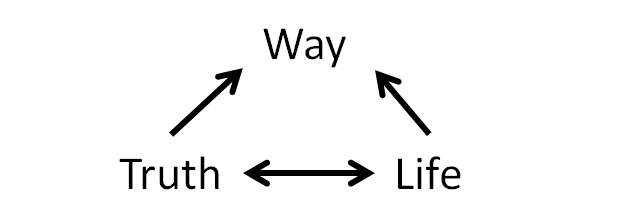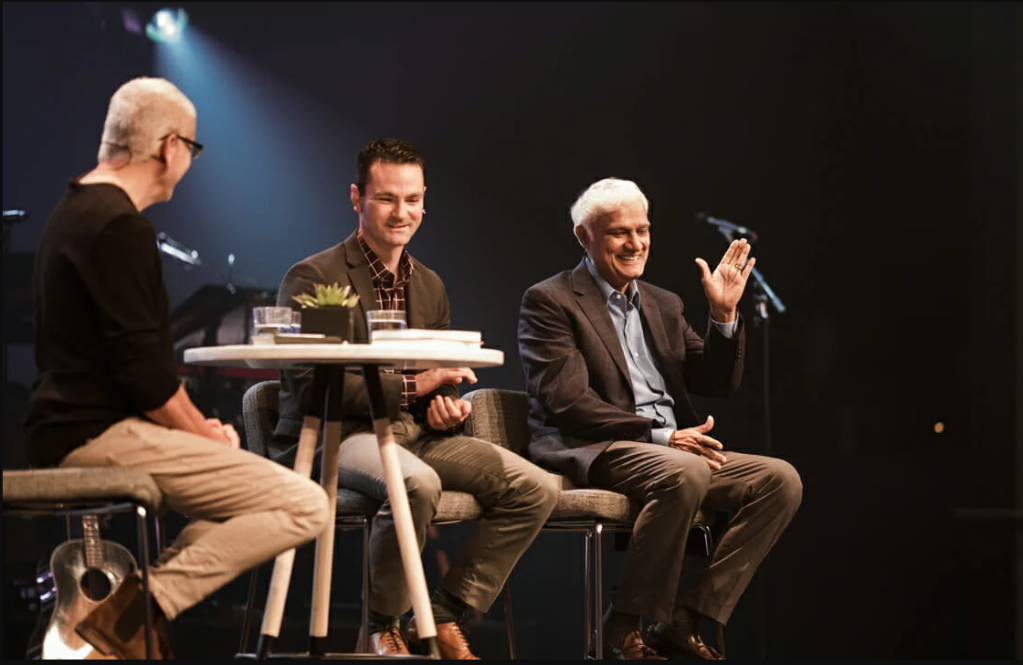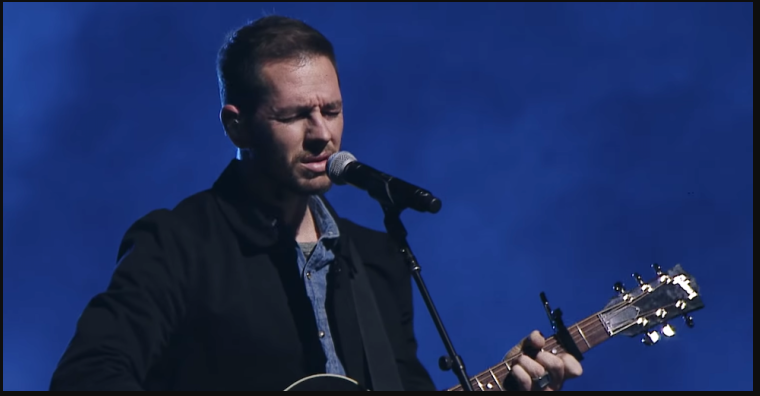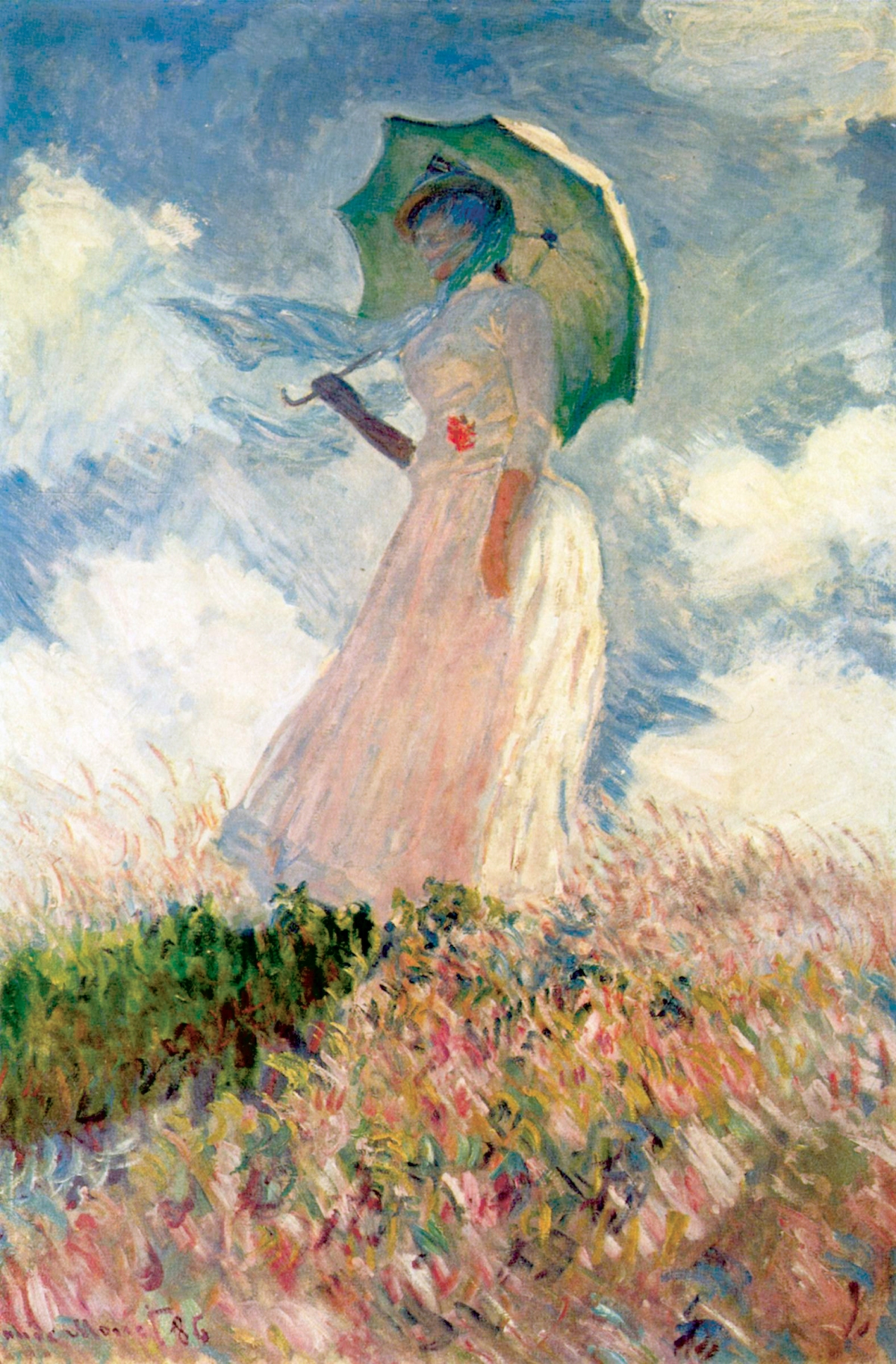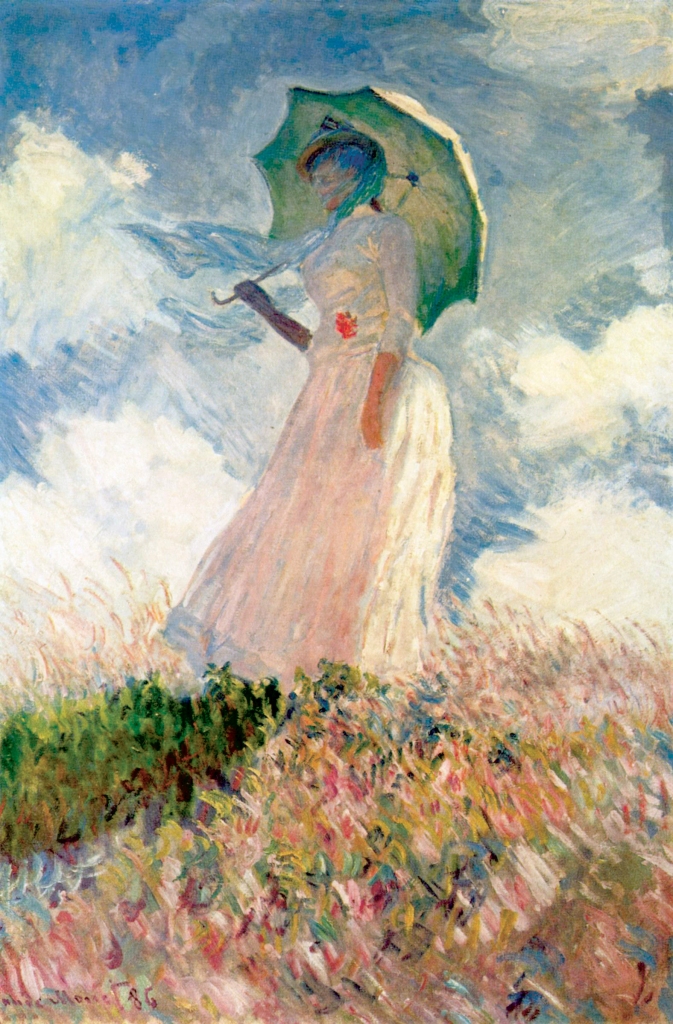S: Bounded set theologians believe that there are people who will be saved, and people who won’t, and they categorize people in terms of this “truth” that they define in order to tell the good people from the bad people. Centered set theologians believe that it is more of a three-dimensional sphere in which all people are being drawn towards the center; namely, Jesus Christ.
Usylvus: But there is a distinction between what is true, and what is not, correct?
S: Yes, but that is between what has personally been revealed to me and the One who revealed it. It’s not my job to judge the fruits of someone else’s belief.
Usylvus: But this still presumes there is truth.
S: The truth I know is what I believe based on my circumstances, my past, my environment, and so forth. My truth is not the same as your truth.
Usylvus: But that would imply that all truth is subjective.
S: All truth is subjective.
Usylvus: Is that true?
S: What you just did was paint me into a corner, and then demand I respond to your question on your own terms.
Usylvus: But that response only evades the question. Is it true that all truth is subjective or not?
S: Everyone filters the world through their particular lens. The idea that “truth exists” is based on your Western Judeo-Christian background, and most of the rest of the world does not see things in that light. Many Eastern philosophies, for example, are exercises in holding one belief in one hand and a completely contradictory view in the other, and deciding never to resolve the paradox. It’s only the inability of the Western mind to hold paradoxes in tension, and their subsequent desire – which stems from a Fundamentalist worldview – that all things be made known, that makes them decide one view is “right” and another is “wrong.” But you cannot have faith without first having doubt, just as you can’t truly know what light is without first being in the dark.
Usylvus: So if a Fundamentalist were to say, “objective truth exists,” would that make their statement wrong?
S: No, but you’re missing the point that your truth is coming from a filtered reality.
Usylvus: I agree we see the world through a filtered reality. That is why we have to be vigilant in determining what is true as opposed to merely what we’ve come to accept as truth.
S: I say there’s no difference.
Usylvus: Again I must ask: Is that true? Isn’t that statement itself an absolute? And if it isn’t, then it’s false, or else everything is reduced to absurdity. Can I look at my face in the mirror and say, “I exist”? No, absurdity! Can I say child rape is wrong? No, absurdity! Is two plus two equal to four? No, absurdity!
S: It’s common for people from your position to jump automatically to the extremes in every question, such as “Is rape wrong?” or “Is murder wrong?”
Usylvus: That’s often because these questions are rarely answered.
S: What about God, then, the great moral Lawgiver? Didn’t He command the Jews to murder the Canaanites? Wasn’t that wrong? But then isn’t he breaking his own law?
Usylvus: But that would imply it’s wrong to break your own law. Why not believe it’s morally good to make a law for everyone else and then not follow it yourself?
S: I’m not saying it’s good or bad, I’m just saying you can’t know.
Usylvus: But that’s precisely the point. If you can’t know, you have established an absolute – namely, that you can’t know – which refutes your own argument. The reason for the extreme examples is to demonstrate that there are in fact some things in this world which are objectively true. Evading them does not answer them. If we can agree, for example, that two and two make four, then it follows there is at least one objective truth in the world. And if one, then maybe more. Thus, it may be objectively wrong to break your own law, and thus a perfectly good (or, at least the Christian) God cannot exist. Or, there may be other pieces of that story that mean His existence is not actually refuted. In any case, if two and two do not make four, but five, then you do not accept that (1) truth exists and (2) it can be attained. In affirming truth’s subjectivity, you have agreed to the absurdity of all things, and therefore we can no longer even have an argument, for an argument presumes there is something being spoken about. But clearly that cannot be true, or even false.
Usylvus: The real trouble lies in your inner agreement to hold up two mutually exclusive views, and never question if perhaps one hand refutes the other. This is contradiction, and one cannot be speaking the truth in doing so. But, nevertheless, it is done, and even has a name: “doublethink.”
“To know and not to know, to be conscious of complete truthfulness while telling carefully constructed lies, to hold simultaneously two opinions which cancelled out, knowing them to be contradictory and believing in both of them, to use logic against logic, to repudiate morality while laying claim to it, to believe that democracy was impossible and that the Party was the guardian of democracy, to forget, whatever it was necessary to forget, then to draw it back into memory again at the moment when it was needed, and then promptly to forget it again, and above all, to apply the same process to the process itself – that was the ultimate subtlety: consciously to induce unconsciousness, and then, once again, to become unconscious of the act of hypnosis you had just performed.”
-Orwell, 1984
Usylvus: To ascribe to this viewpoint, finally, means the end of civilization. To believe that moral truth is “decided upon” by a society or group of people who live together is to give up the whole game, for in this case the loudest, the most popular, the “intellectuals,” the cultural betters and moral superiors to whom the vast majority of this society’s populace will naturally look, will be the deciders of what is right and wrong; what is truth. And if man’s heart is so desperately wicked, as history has shown it to be; if his nature is barbarity, as Thucydides recognized; and if truth lies ultimately in their hands, then does the French Revolution murder the innocent; then do the Maoists purge Red Jiang; then do the Aryans confessors of the German church turn the truth of Christ into a lie.
These, then, are the steps of the argument:
- Truth is subjective.
- If truth is subjective, then truth is determined by the individual.
- But the individual cannot be divorced from the society in which he lives. Therefore, his truth will be affected by the collective society.
- Furthermore, individuals are more likely to agree to what is popular, and less likely to agree to what is unpopular, especially if truth is relative.
- Since what is popular is often determined by the leaders (cultural, political, moral, spiritual), the leaders in that society will have the most influence on what is and is not true.
- If the leaders of that society have sufficient influence, the truth they decide will be the truth generally accepted by that society.
- Man’s heart naturally tends toward abuse of his neighbor, especially for his own gain.
- Thus, the leaders of such a society will naturally tend toward evil, and the society as a whole will tend toward totalitarianism.
Corollary: In order to maintain the possibility of a society not marked by evil and injustice, (1) the objectivity of truth must be affirmed, and (2) sufficient influence (absolute power, control of the flow of information, etc.) must be restricted from being attained by any one discernible source, where a discernible source is any individual or group which can influence others by means up to and including coercion.
In order to accomplish Corollary (2), such methods are employed in economies and governments which assume the inherent selfishness of man from Argument (7) such as free-market economies (which decentralize means of production and incentivize creativity) and separation of powers and elections (which increase the probability that no one Party holds all political power), respectively.
In order to accomplish Corollary (1), one must simply affirm it. In the old language, this is referred to as “the leap of faith.” And besides, whether one chooses to affirm or deny it, or forget the question altogether and run to the arms of a hedonistic oblivion, one cannot escape Truth. As certainly as two and two make four, Truth must exist, in some way, in some degree. If it does not, then the words in this discussion are meaningless. Everything is absurdity. If the Party controls the Truth, then does it any longer exist? That is the great struggle. Who knows which side shall prevail while time yet constrains us.
But I choose to have faith that Truth exists.
“You would not make the act of submission which is the price of sanity. You preferred to be a lunatic, a minority of one. Only the disciplined mind can see reality, Winston. You believe that reality is something objective, external, existing in its own right. You also believe that the nature of reality is self-evident. When you delude yourself into thinking that you see something, you assume that everyone else sees the same thing as you. But I tell you, Winston, that reality is not external. Reality exists in the human mind, and nowhere else. Not in the individual mind, which can make mistakes, and in any case soon perishes: only in the mind of the Party, which is collective and immortal. Whatever the Party holds to be the truth, is truth. It is impossible to see reality except by looking through the eyes of the Party. That is the fact that you have got to relearn, Winston. It needs an act of self-destruction, an effort of the will. You must humble yourself before you can become sane.“
-Orwell, 1984



